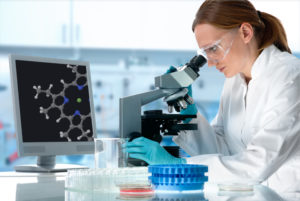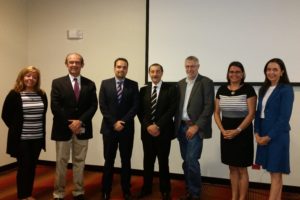Symposium Tools for Food Risk Analysis
San José, Costa Rica
November 2, 2016 – November 3, 2016
Park Inn Hotel
FAO (Rome, 2007) indicates that risk assessment is the central scientific component of risk analysis and has arisen mainly as a consequence of the need to make decisions to protect health in a context of scientific uncertainty. Risk assessment can generally be described as the determination of possible adverse effects on life and health resulting from exposure to hazards during a given period of time.
The Codex Alimentarius Commission defines risk assessment as "a scientifically based process consisting of the following steps: hazard identification, hazard characterization, exposure assessment, and risk characterization."
Investment: includes food, materials and certificate.
- $ 200 general admission.
- $ 100 academics and active students.
Information about forms of payment and registration process: ilsimesoamerica@gmail.com
Speakers:
Dr. Claudia B. González.
Ph.D. in Chemical Sciences. Coordinator of the national program "Agroindustry and Value Added" of the National Institute of Agricultural Technology (INTA). Coordinator of the Allergens in Food Platform. Adjunct Professor of the National University of General San Martín, Argentina.
Presentation: Allergens in food. A problem of Public Health.
Dr. Fernando Sampedro.
Ph.D. in Food Technology. Professor at the Center for Animal Health and Food Safety, Faculty of Veterinary Medicine, St Paul University of Minnesota, USA.
Presentation 1: Introduction to risk analysis applied to the food industry.
Presentation 2: Use of tools in the analysis of microbiological risks in the food industry.
Dr. Donald W. Schaffner.
Specialist in Food Sciences and professor at Rutgers University. His research interests include the quantitative evaluation of microbiological risks and predictive microbiology of foods.
Presentation 1: Tools for the analysis and management of microbiological risks in food.
Presentation 2: Microbiological analysis as a tool to verify compliance with preventive measures.
Ing. Fernando Cardini.
Ph.D. in Chemical Sciences. President of the Argentine Institute for Quality (IAPC), professor at the University of Buenos Aires. Academic Director of the School for Quality Management and Continuous Improvement.
Presentation: Tools for the analysis and management of chemical risks in food.
Dr. Gustavo Polenta.
Specialist in Industrial Food Quality, Master in Food Science and Technology. Teacher and researcher of the National Institute of Agricultural Technology (INTA).
Presentation: Analysis and management of risks in food allergens.
Ing. Jorge Madriz.
Professor at the National University of Costa Rica. Former Founder of the CTNBio. Director of the UNEP-GEF program for the implementation of the Cartagena Protocol in Costa Rica.
Presentation: Protocols for the release of GMOs-OVMs to the market: decisions based on risk analysis.
MS.c Carmela Velázquez.
General Director of the National Center for Food Science and Technology (CITA). Professor at the University of Costa Rica. Vice President of ILSI Mesoamerica.

From left to right: Dr. Claudia González, Eng. Jorge A. Jara, Dr. Fernando Sampedro,
Eng. Fernando Cardini, Dr. Donald Schaffner, MS.c. Carmela Velazquez, Dr. Hannia León